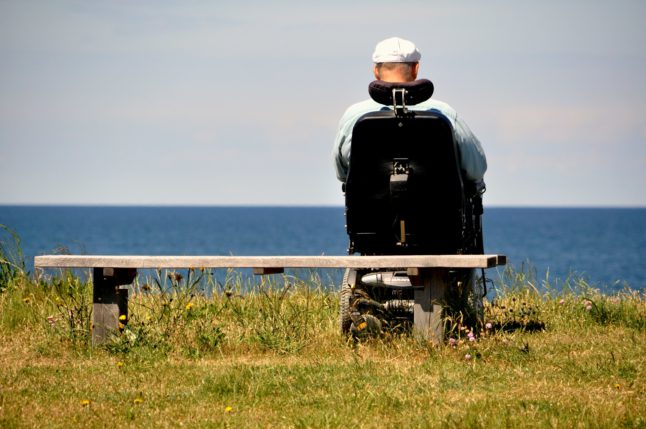The law, which passed by 191 votes in favour, 60 against with 91 abstentions, makes Spain one of the few nations to allow people to change their gender on their national identity card with a simple declaration.
In Europe, Denmark was the first country to grant such a right in 2014.
Thursday’s vote was the last hurdle for legislation that has caused a major rift within Spain’s fractious left-wing coalition, as the country gears up for a general election later this year.
The legislation is a flagship project of the equality ministry, which is held by Podemos, the radical left-wing junior partner in the Socialist-led coalition.
“This is one of the most important laws of this legislature… we have taken a giant step forward,” Equality Minister Irene Montero told lawmakers ahead of the vote.
“This law recognises the right of trans people to self-determine their gender identity, it depathologises trans people. Trans people are not sick people, they are just people.”
Until now, adults in Spain could only request the change with a medical report attesting to gender dysphoria and proof of hormone treatment for two years. Minors needed judicial authorisation.
The new law drops all such requirements, with those aged 14 and 15 allowed to apply if their parents or legal guardians agree.
Those aged 12 and 13 will also require a judge’s permission to make the move.
‘We are not ill’
The vote was hailed by campaigners who said Spain was setting an example that would encourage others to follow suit.
“We’re celebrating the fact this law has passed after eight years of tireless work to obtain rights for the trans community,” Uge Sangil, head of FELGBTI+, Spain’s largest LGBTQ organisation, told AFP outside parliament.
“We’re winning human rights with the free determination of gender… From today, our lives will change because we are not ill.”
The need for laws to safeguard trans rights has taken on a new urgency with the sharp rise in people reporting gender dysphoria — the distress caused by a mismatch between a person’s biological sex and the gender with which they identify.
But in recent years, several European nations which pioneered transgender legislation have had second thoughts.
Among those who have reimposed restrictions are Sweden and Finland, while in the United Kingdom, Westminster last month blocked a Scottish trans rights law similar to Spain’s.
The bitter dispute over transgender issues played a role in Wednesday’s shock resignation of Scotland’s First Minister Nicola Sturgeon.
Although she had championed the law, Sturgeon became entangled in a major row over transgender women entering all-female prisons, following a rape case that sparked public outcry.
A year ago, Sweden decided to halt hormone therapy for minors except in very rare cases.
In December, it limited mastectomies for girls wanting to transition to a research setting, citing the need for “caution”.
The decision followed moves by Finland, which decided to restrict gender reassignment hormone treatment for similar reasons in 2020.
Last-minute warnings
In Spain, the bill generated deep political and ideological divisions within its left-wing coalition government, driving a wedge between activists in its powerful feminist lobby and LGBTQ equality campaigners.
And it was adamantly opposed by the right wing with Maria Jesus Moro of the opposition Popular Party (PP) making a last-minute appeal to lawmakers to vote against the law.
“We’ve all heard about countries backtracking because they now realise they were too hasty and it has caused a lot of suffering. Let’s not go through the same thing,” she said ahead of the vote.
Other voices have warned that gender self-determination could spell difficulties ahead that will need addressing, one of which was Reem Alsalem, the UN rapporteur on violence against women.
“Nations need to reflect on whether someone with a male biological sex, once they have acquired their female gender certificate, should be able to access all programmes and categories designed for biological women,” she told El Mundo daily earlier this month.
At Thursday’s session, Spanish lawmakers also passed another law granting paid medical leave to women suffering from severe period pain.



 Please whitelist us to continue reading.
Please whitelist us to continue reading.
While I have every sympathy for transgender people because of the very real difficulties they face I do not condone the permitted use of access to exclusively female areas such as toilet facilities, sports areas, jails etc. my opposition stems from the ease with which such areas can now be accessed by people who are not, in fact, transgender at all.
This is an ill thought out law which has not been given sufficient debate and there are many examples of the trouble it causes. It is wide open to abuse and if it were men’s areas that were being invaded willy nilly (no pun intended) in the same way there would, quite rightly, be a revolt against such a law.